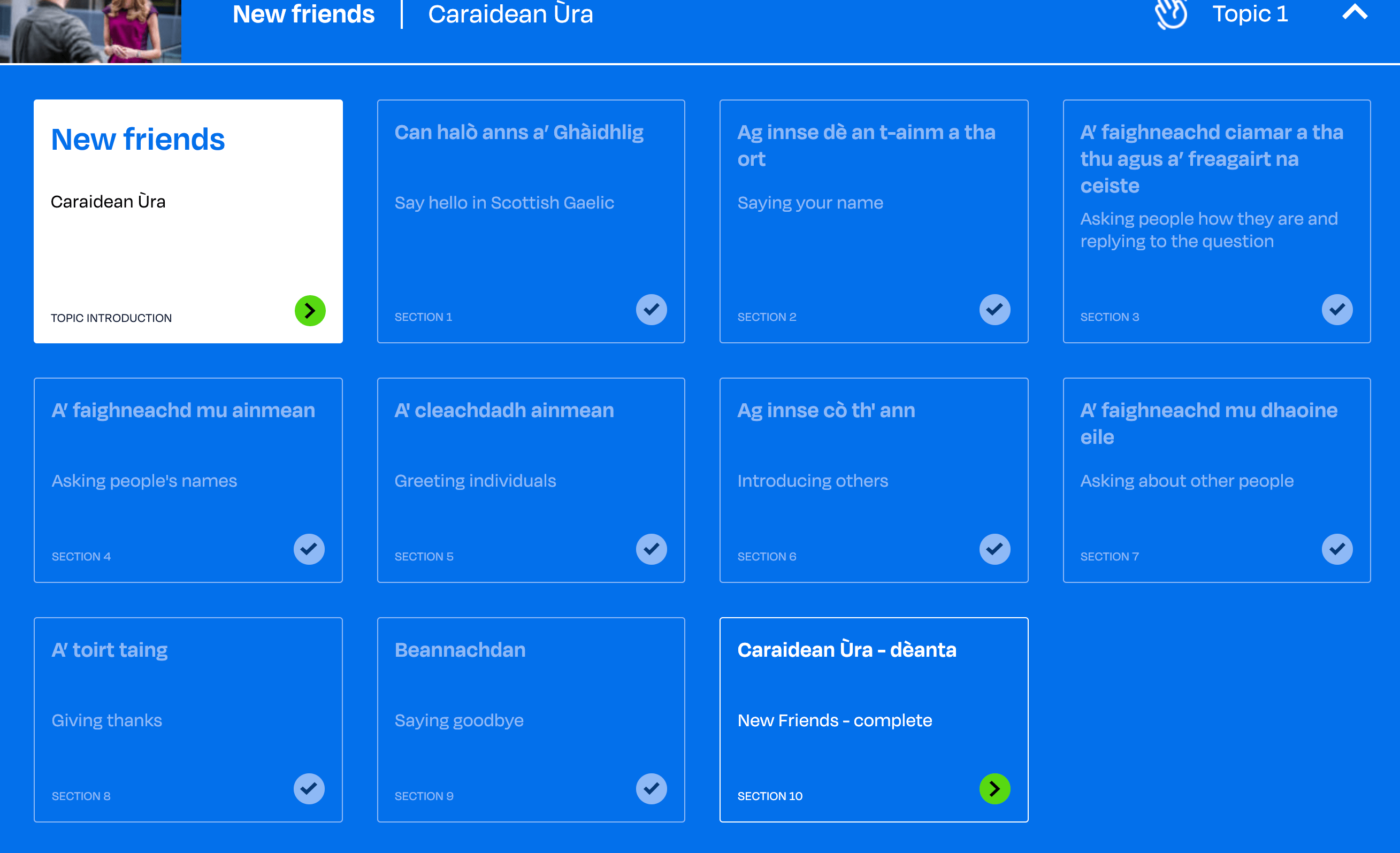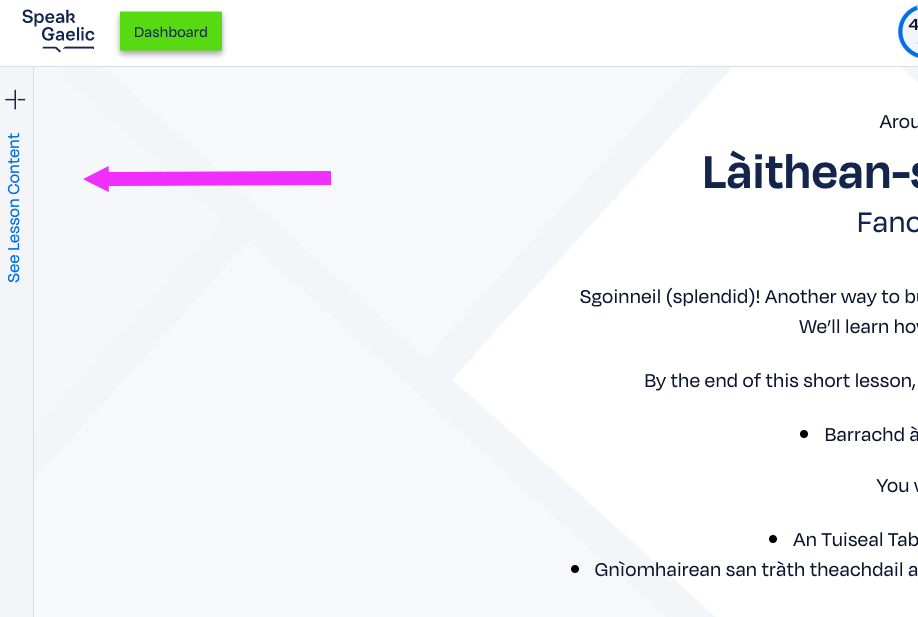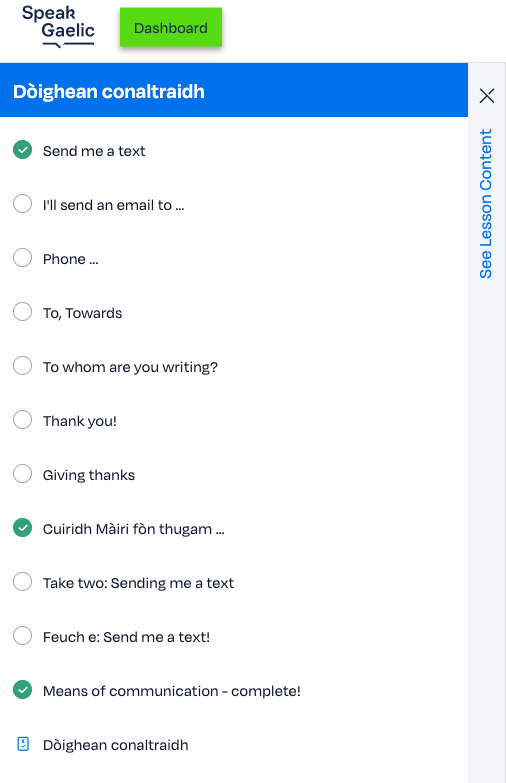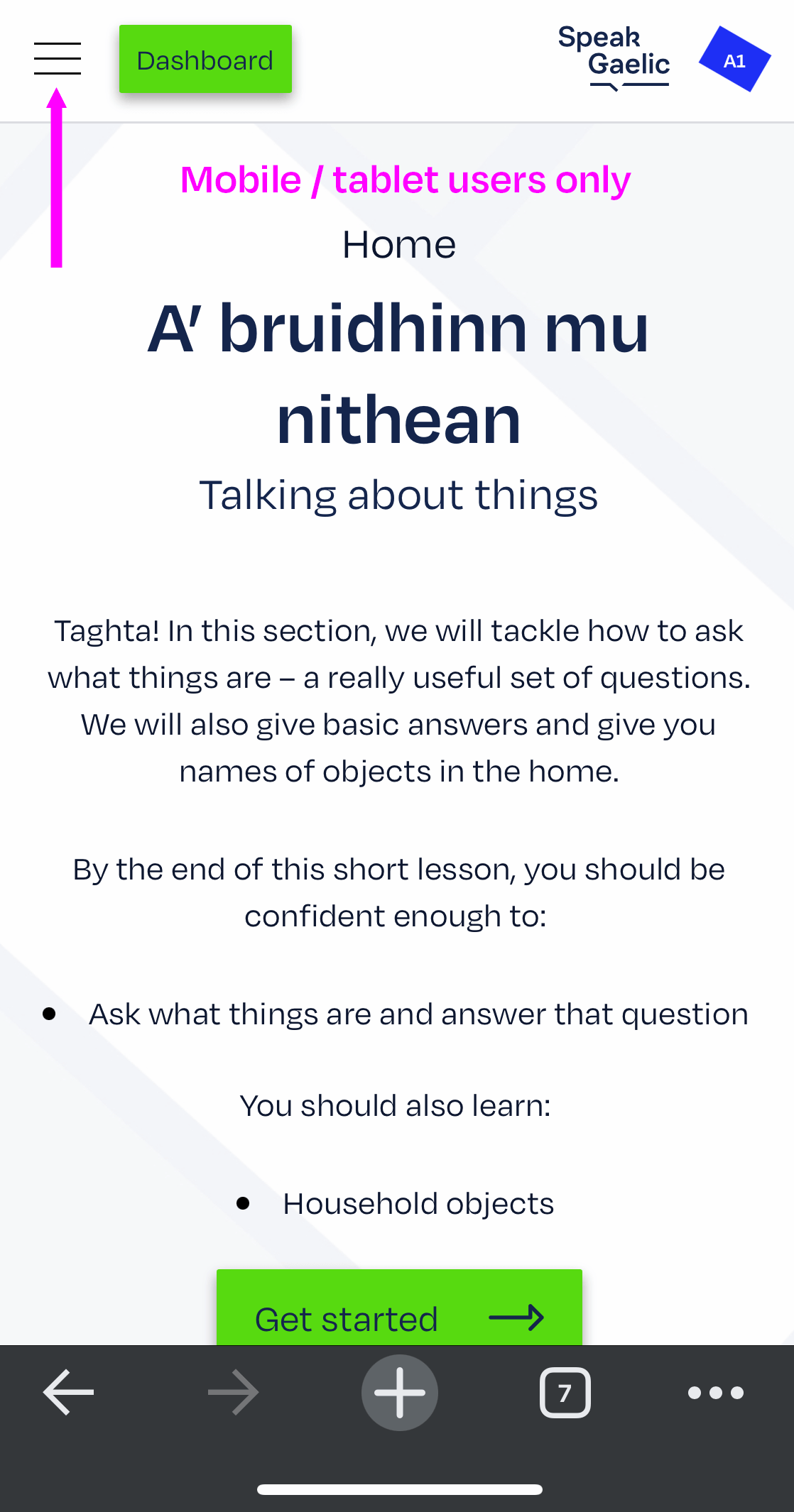Air sgàth 's gu bheil
Because that …
The five expressions for ‘because’ below are all followed by ‘s (and). These can be linked to a dependent clause using the gun | nach form of the verb:
a chionn ‘s
because, since
a thoradh ‘s
due to
air sàillibh ‘s
because
air sgàth ‘s
because
air tàillibh ‘s
because
Carson as fheàrr leat an trèan(a)?
Why do you prefer the train?
A chionn ‘s gu bheil i nas cofhurtaile.
Because it’s more comfortable.
Carson as fheàrr leat an trèan(a)?
Why do you prefer the train?
Air sgàth ‘s nach bi mi a’ cadal air a’ bhus.
Because I don’t (can’t) sleep on the bus.
Carson nach do ghabh thu am bus?
Why didn’t you take the bus?
Air sàillibh ‘s nach robh airgead agam.
Because I didn’t have any money.
Oir is different because it links two independent clauses and is followed by the independent form of the verb:
Carson a b’ fheàrr leat am bus?
Why did you prefer the bus?
B’ fheàrr leam am bus oir tha e nas saoire.
I preferred the bus because it’s cheaper.
Carson a dh’fhalbh thu tràth?
Why did you leave early?
Dh’fhalbh mi tràth oir bha mi sgìth.
I left early because I was tired.
An àite sin is rachainn ann nad àite
If we are talking about travel, we will sometimes want to recommend a particular way of travel, or give someone different choices. We can do this by using the compound preposition an àite (in place of, instead of).
An àite a dhol air a’ bhus, faodaidh tu coiseachd ann.
Instead of going on the bus you can walk there.
Rachainn air an trèan(a), no an àite sin, rachainn air a’ bhus.
I would go on the train, or instead of that, I could go on the bus.




